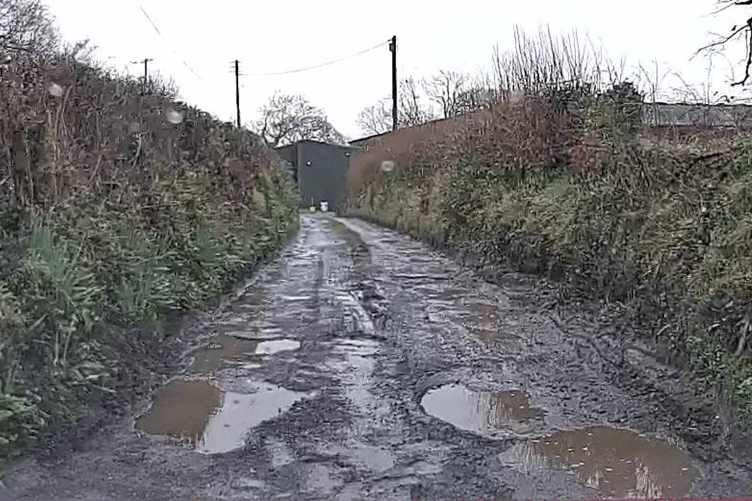As a result of high rainfall and cold snaps this past winter, Devon’s road network - the largest in the country - is pothole-marked, cracked, broken and downright dangerous.
As someone who drives hundreds of miles across South Devon each month, I have acquired the skills of a Formula One pit stop crew when it comes to changing tyres! The state of our roads is not just a frustration but a costly problem that inconveniences residents and visitors alike, even putting people in danger. While the increase in funding to Devon County Council (DCC) will go some way to helping repair the roads, the scale of the problem is far greater than most can ever imagine.
The total cost to repair all of Devon’s roads is estimated to be over £200m. A vast number of our roads comprise only a thin layer of asphalt on top of the old cart roads of yesteryear, and can deal with neither the weight nor frequency of new vehicles.
So, what can be done? Of course, funding needs to be provided to take on the bulk of repairs and upgrades now. The change of position on HS2 has unlocked significant money, and Devon is set to benefit. As a result, DCC will receive an extra £6.6m for highway maintenance in 2024, followed by a minimum of £208.6m between now and 2034. This signifies the largest continual investment into our road networks since they were first built and will result in a wide scale improvement.
However, for it to be truly effective, the money needs to be made available sooner rather than later. Front loading the funding and making it available now will help prevent problems escalating and costs soaring, and will allow DCC to take on bigger projects rather than just tinkering at the edges.
The change in policy around second homes and council tax will also bring in additional funding. Furthermore, subject to Cabinet approval, DCC will be investing an additional £10m to repair potholes and improve roads, made possible thanks to a grant from Government. This will enable the Council to run a £72 million road maintenance programme during 2024/25, delivering hundreds of repair and improvement schemes across Devon.
To ensure this money is well spent, the public must play their part by reporting dangerous and poor condition roads through the DCC website, and the Council must respond in a timely manner and be transparent about their work.
Due to the sheer size of Devon’s road network, the scale of the task is immense. Unlocking the money earlier, providing transparency, repairing adjacent potholes and introducing new technologies are all essential ingredients to remedy the problem. Finally, empowering local parish councils to repair minor potholes in their respective areas will only help alleviate the scale of the challenge.
Out network will be steadily repaired over the next few months, but the key is to ensure our roads have resilience and provide durability to allow people to safely navigate across the county.
I am running a survey to gain residents’ feedback on potholes, in preparation for a parliamentary debate – please do visit www.anthonymangnall.co.uk to have your say.






Comments
This article has no comments yet. Be the first to leave a comment.